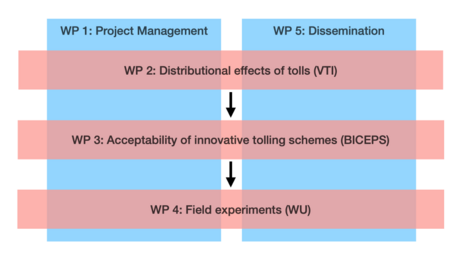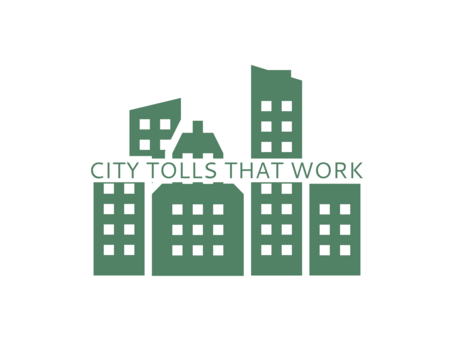Project overview
Background
City tolls are widely recognised as an effective policy measure that can substantially improve urban accessibility by fighting congestion, while also decreasing the negative environmental impacts of car traffic in cities and therefore improving liveability and quality of life. Nevertheless, there are almost no cities in which city tolls have been implemented; noticeable exceptions are London, Stockholm and Singapore.
City tolls tend to face strong public backlash. Public acceptability of the pricing mechanism is low, mainly due to concerns over potential negative distributional effects, with the poor and disadvantaged being over-proportionally negatively affected. For city tolls to be operational in practice, it should have a strong support under conditions of a citywide referendum in which stakeholders can elaborate and convey their arguments to the public.
Research approach
To measure the distributional impacts of tolls, we make use of detailed data from existing Swedish congestion charging schemes.The Swedish congestion charging systems are one of few full-scale time-of-day dependent cordon-based congestion charging systems in the world. The tolls were introduced in Stockholm in 2006, and in Gothenburg in 2013. The political and public support remains high and stable. This provides a unique opportunity for studying effects of a real-world example. Analysis of a new unique data source, will help to reveal the true redistributable effect of the charges depending on household income, home location (exact coordinates in the city, suburbs and rest of the counties and country are available), and business traffic, trucks, and private trips. We will use a unique register database covering the full Swedish adult population in 2018, containing 5 million households. The database contains socio-economic information for all registered Swedish adults, as well as information about the paid congestion tax in a year, and all privately owned car ownership which can be linked to their owner. Household vehicle kilometres traveled are obtained from odometer readings from the annual mandatory vehicle inspection. We also know all paid congestion tax for all professional vehicles, which is of high interest, as an intended effect of the charges is to prioritise the more valuable professional traffic, with a higher willingness to pay. For the data analysis, we will make use of advanced econometric techniques.
For designing and evaluating efficient, fair, and acceptable tolling schemes, we will first develop various innovative tolling schemes (such as cash-back variants with public transport credits) that we expect to increase acceptability beyond standard tolling schemes, and assess their efficiency and expected distributional impacts using standard economic assessment methods. We will conduct a pre-test of the acceptability of these tolls, and based on that make a more narrow selection, which will then be included in a survey. The survey will be sent out in Vienna and Riga, mostly among car users, and include a stated choice experiment which will allow us to disentangle factors influencing the acceptability of tolls. Based on the results of the survey, we will then implement one or more of the innovative tolling schemes in a field experiment, for which approximately 500 drivers will be recruited. The experiment(s) allow us to assess the behavioural reactions of drivers to the newly proposed tolling schemes. The technology employed in the experiment is based on an App capable of measuring mobility behavior developed by Dolphin Technologies, an Austrian IT firm.
Work plan
The strategy of the work plan is optimized so as to achieve our objective to design, test and evaluate tolling schemes, seeking maximum synergy from cooperation between academic and non-academic partners, between the different academic partners, and from bringing together the different research angles towards effective, fair, and acceptable city tolls in one project with the aim to derive robust and generalizable insights and recommendations.


